- europages
- >
- COMPANIES - SUPPLIERS - SERVICE PROVIDERS
- >
- crushing and screening
Results for
Crushing and screening - Import export

ECSMT MACHINERY EQUIPMENTS
Turkey
ECMT RUROMIX EMI130 Crawler Mobile Counterattack Crusher Station Strong and stable, Best quality, Long service life and low operating cost, Effectiveness and efficiency.
Request for a quote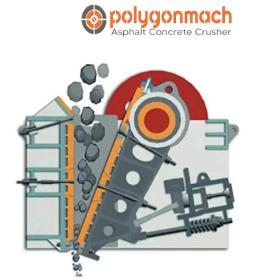
POLYGONMACH MAKINE SANAYI VE TICARET LTD STI
Turkey
In order to reduce size sort and separate different kinds of materials including stones ores and minerals crushing and screening plants also called crushing and screening systems are facilities used for this purpose. Screens are used to sort or separate the crushed material according to size shape or other properties. These plants normally consist of crushers for breaking large materials into smaller pieces. Plants for crushing and screening primarily serve to change raw materials into the precise sizes or forms needed for additional processing or use in a variety of industries including mining construction and recycling. While the screening equipment divides the crushed material into various fractions according to predetermined criteria the crushing equipment aids in the breakdown of large materials into manageable sizes.
Request for a quote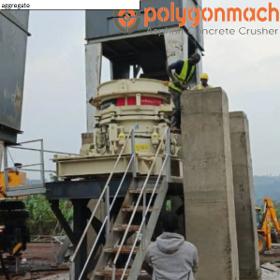
POLYGONMACH MAKINE SANAYI VE TICARET LTD STI
Turkey
A basalt crushing and screening plant is a facility that meets the purposes of crushing and screening of basalt stones into aggregate sizes demanded on construction fields, infrastructure, and industry. Basalt is an igneous rock with basaltic features. Large pieces of basalt are broken into smaller ones in the process of crushing, made with such equipment as jaw crushers or cone crushers. After the primary crushing stage, it is separated by sifting in order to segregate the particular material according to size, enabling the production of different sizes of the same material. The efficiency of separation for these highly intermixed crushed basalt materials, in different fractions by size, by the vibrating screens makes them an integrative screen in the process. It is t he enormous product that comes out from basaltoc crushing and screening plants.
Request for a quote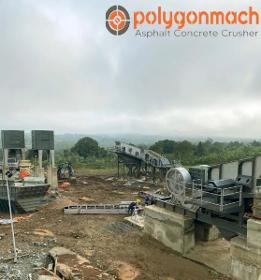
POLYGONMACH MAKINE SANAYI VE TICARET LTD STI
Turkey
The gabbro crushing and screening plant shall be designed capable of processing gabbro, a kind of coarse-grained, dark-colored, and dense igneous rock. Gabbro majorly consists of calcium-rich plagioclase feldspathoid and pyroxene; at times, it also contains olivine, hence very strong. This toughness makes gabbro an excellent source of construction aggregates and road base, but it requires a very robust processing facility to crush and screen efficiently into usable products. Plants for crushing and screening of gabbro are equipped with various heavy-duty machinery, including crushers, screens, and conveyors, all working together to break down large hunks of gabbro into aggregate of varied sizes. The end products are used in different construction projects whereby strength, durability, and quality are paramount concerns. The main operation in a gabbro crushing and screening plant is by first extracting raw gabbro from quarries.
Request for a quote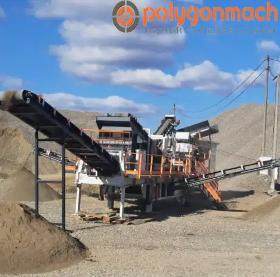
POLYGONMACH MAKINE SANAYI VE TICARET LTD STI
Turkey
What are the functions of mobile screening and crushing plants? For a variety of uses such as quarry mining and construction mobile crushing and screening plants are advanced machinery systems designed to crush and screen rocks minerals and other materials. These plants combine screening and crushing operations onto a single mobile platform providing great efficiency and flexibility. These plants are a popular option for many industrial operations because they save space and money by doing away with the need for separate crushing and screening units. Which Components Make Up Mobile Crushing and Screening Plants? 1. Feeder The feeder controls the flow of stones and minerals into the crushing equipment making it a crucial part of mobile crushing and screening plants. Feeders provide a constant and regulated material delivery avoiding jams and enabling a steady processing rate.
Request for a quote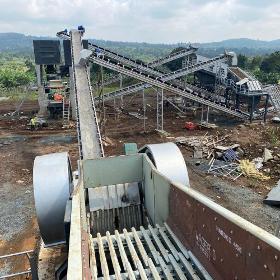
POLYGONMACH MAKINE SANAYI VE TICARET LTD STI
Turkey
How do you operate a crushing and screening plant? In mining operations or quarry sites a stationary crushing plant is a permanent installation used for crushing and sizing large quantities of raw materials into smaller more manageable pieces. An efficient and highly effective crushing and screening process is created by strategically arranging a variety of crushers screens conveyors and feeding devices in stationary crushing plants which are fixed in one location. Static crushing plants are fixed in one location as opposed to mobile crushing plants which can be moved and set up in different locations to meet temporary processing needs. These plants long lifespan makes them ideal for large-scale mining quarrying and recycling operations where the volume and consistency of the material being processed necessitate a dependable long-term solution with high productivity.
Request for a quote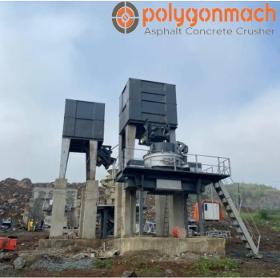
POLYGONMACH MAKINE SANAYI VE TICARET LTD STI
Turkey
A basalt crushing and screening plant is a facility that meets the purposes of crushing and screening of basalt stones into aggregate sizes demanded on construction fields, infrastructure, and industry. Basalt is an igneous rock with basaltic features. Large pieces of basalt are broken into smaller ones in the process of crushing, made with such equipment as jaw crushers or cone crushers. After the primary crushing stage, it is separated by sifting in order to segregate the particular material according to size, enabling the production of different sizes of the same material. The efficiency of separation for these highly intermixed crushed basalt materials, in different fractions by size, by the vibrating screens makes them an integrative screen in the process. It is t he enormous product that comes out from basalt\toc crushing and screening plants. It can be used as high-quality aggregate for making concrete, building highways, making gardens, and other constructions that need firm an
Request for a quote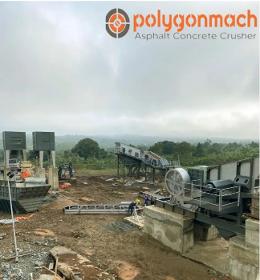
POLYGONMACH MAKINE SANAYI VE TICARET LTD STI
Turkey
The gabbro crushing and screening plant shall be designed capable of processing gabbro, a kind of coarse-grained, dark-colored, and dense igneous rock. Gabbro majorly consists of calcium-rich plagioclase feldspathoid and pyroxene; at times, it also contains olivine, hence very strong. This toughness makes gabbro an excellent source of construction aggregates and road base, but it requires a very robust processing facility to crush and screen efficiently into usable products. Plants for crushing and screening of gabbro are equipped with various heavy-duty machinery, including crushers, screens, and conveyors, all working together to break down large hunks of gabbro into aggregate of varied sizes. The end products are used in different construction projects whereby strength, durability, and quality are paramount concerns.
Request for a quote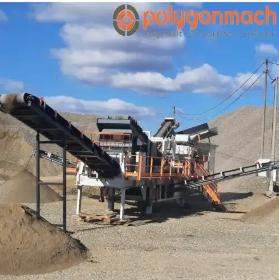
POLYGONMACH MAKINE SANAYI VE TICARET LTD STI
Turkey
For a variety of uses such as quarry mining and construction mobile crushing and screening plants are advanced machinery systems designed to crush and screen rocks minerals and other materials. These plants combine screening and crushing operations onto a single mobile platform providing great efficiency and flexibility. These plants are a popular option for many industrial operations because they save space and money by doing away with the need for separate crushing and screening units.In order to reduce big chunks of stone and other materials into smaller more manageable sizes for a range of applications mobile crushing and screening plants work by coordinating a series of coordinated actions. First materials like stones are fed into the feeder which controls the flow of materials to the crusher so that the stream is steady and easy to handle.
Request for a quote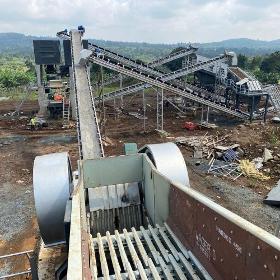
POLYGONMACH MAKINE SANAYI VE TICARET LTD STI
Turkey
700-1000 TPH Basalt Crushing and Screening Plant is made for basalt aggregate producing at high production through output. Basalt Crushing and Screening Plants can be used for many different purposes in a wide range of sizes, according to the third stage of the modern performance-made machine and machinery. These plants have a reinforcement of strong basalts that are characteristic of very great volcanic stones of high durability. These plants basically break large boulders of basalt rocks into smaller chips and thereafter screen them to generate high-quality aggregate, suitable for a large variety of applications in construction, infrastructure development, and industrial projects. These plants, by processing basalt rocks, play an important role in delivering strong materials needed for construction projects where durable and reliable aggregates are required to support heavy loads and environmental conditions.
Request for a quote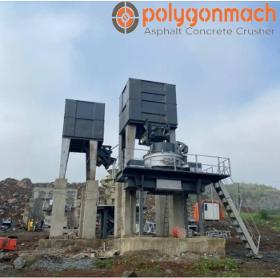
POLYGONMACH MAKINE SANAYI VE TICARET LTD STI
Turkey
A 700 1000 TPH Limestone Crushing and Screening Plant is a facility designed to process limestone raw material into high-quality aggregates with a throughput capacity of 700 to 1000tons per hour. These plants are specifically designed to cater to the demands of different industries like construction, road building, and landscaping, where such high-quality limestone aggregates are required. It usually hosts primary crushing equipment, screening machinery, and conveyors—all designed to handle limestone material conveniently. The initial processing of larger limestone rocks into smaller, more workable fragments is done with primary crushers like jaw crushers and cone crushers. This is very important for the sizing of the raw limestone material, required for further processing, into a size that is ready for making the final product, as per the defined size and quality requirements.
Request for a quote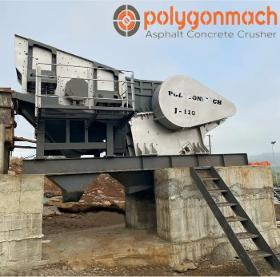
POLYGONMACH MAKINE SANAYI VE TICARET LTD STI
Turkey
500-750 tph Riverstone Crushing and Screening Plants are advanced facilities designed to process Riverstones into premium stone aggregates within a throughput capacity range of 500 to 750 tons per hour. These sophisticated plants consist of primary crushing equipment, screening machinery, and conveyors specifically configured to handle Riverstone materials efficiently. The primary crushing stage involves robust crushers such as jaw crushers, cone crushers, or impact crushers that break down large Riverstones into smaller fragments, preparing them for subsequent processing within the specified high throughput capacity. Following primary crushing, the material is meticulously screened using vibrating screens to classify the Riverstone aggregates into different fractions based on size requirements. This precise screening process guarantees that the final aggregates meet strict quality standards necessary for various construction, landscaping, and industrial applications.
Request for a quote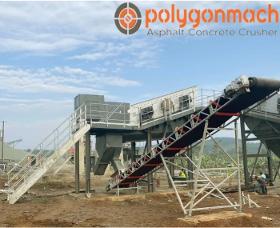
POLYGONMACH MAKINE SANAYI VE TICARET LTD STI
Turkey
350-500 tph Riverstone Crushing and Screening Plants are specialized facilities designed to process Riverstones into high-quality stone aggregates within a throughput capacity range of 350 to 500 tons per hour. These plants consist of essential components such as primary crushing equipment, screening machinery, and conveyors tailored to efficiently handle Riverstone materials. The primary crushing stage involves crushers like jaw crushers, cone crushers, or impact crushers that break down large Riverstones into smaller fragments, preparing them for subsequent processing within the specified throughput capacity. Following primary crushing, the material is directed to screening equipment, such as vibrating screens, which classify the Riverstone aggregates into different fractions based on size requirements. This careful screening process ensures that the final aggregates meet stringent quality standards essential for various construction, landscaping, and industrial applications.
Request for a quote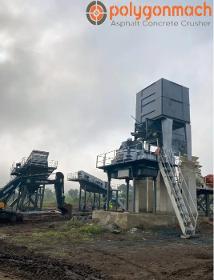
POLYGONMACH MAKINE SANAYI VE TICARET LTD STI
Turkey
250-350 tph Riverstone Crushing and Screening Plants are specialized facilities designed to process Riverstones into high-quality stone aggregates within a throughput capacity range of 250 to 350 tons per hour. These plants consist of essential components such as primary crushing equipment, screening machinery, and conveyors tailored to handle Riverstone materials efficiently. The primary crushing stage involves crushers like jaw crushers, cone crushers, or impact crushers that break down large Riverstones into smaller fragments, preparing them for subsequent processing within the specified throughput capacity. Following primary crushing, the material is directed to screening equipment, such as vibrating screens, which classify the Riverstone aggregates into different fractions based on size requirements. This meticulous screening process ensures that the final aggregates meet stringent quality standards necessary for various construction, landscaping, and industrial applications.
Request for a quote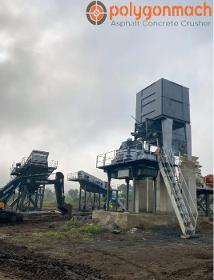
POLYGONMACH MAKINE SANAYI VE TICARET LTD STI
Turkey
150-250 tph Riverstone Crushing and Screening Plants are specialized facilities designed to process Riverstones into high-quality stone aggregates within a throughput capacity range of 150 to 250 tons per hour. These plants consist of essential components such as primary crushing equipment, screening machinery, and conveyors tailored to handle Riverstone materials efficiently. The primary crushing stage involves crushers like jaw crushers, cone crushers, or impact crushers that break down large Riverstones into smaller fragments, preparing them for subsequent processing within the specified throughput capacity. Following primary crushing, the material is directed to screening equipment, such as vibrating screens, which classify the Riverstone aggregates into different fractions based on size requirements. This meticulous screening process ensures that the final aggregates meet stringent quality standards necessary for various construction, landscaping, and industrial applications.
Request for a quote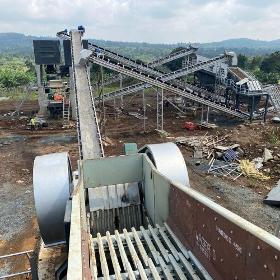
POLYGONMACH MAKINE SANAYI VE TICARET LTD STI
Turkey
The 350-500 tph Granite Crushing and Screening Plant is one of the large full-featured plants unveiled for the market, designed to generate quality granite aggregate, at processing intensity levels from 350 to 500 TPH. These plants come championed with primary crushers, secondary crushers, operating conveyors and feeders, vibrating screens, all gruesomely engineered for optimum crushing and screening effectively. The primary crushers are expected to reduce oversize granite rocks into properly sized fragments for processing to produce more value-added building material. The secondary crushers are for a finer aspect of anything so that they reach the ideal size aggregate, and the vibrating screens perform an accurate classification of the crushed stone into different fractions, by size. Such stringent screening ensures that the end aggregates are produced of remarkable quality for use in various kinds of construction work and infrastructural projects as well as in many industrial applica
Request for a quote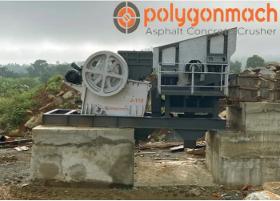
POLYGONMACH MAKINE SANAYI VE TICARET LTD STI
Turkey
100-150 tph Riverstone Crushing and Screening Plants are special plants that are intended for processing Riverstones into aggregate in-crushed-stone-quality needs within a throughput capacity range of 100 to 150 tons per hour. The plants would have primary crushing equipment, screening tools, conveyors—all critical units designed specifically to handle Riverstone material efficiently. Primary crushing includes crushers like jaw crushers or cone crushers that break the larger size of Riverstones into smaller pieces in preparation for the subsequent processing stages, specified in the throughput capacity. The screened material through primary crushing goes to screening equipment, such as vibrating screens, whose task is to classify the Riverstone aggregates by size into fractions. All this is an outcome of rigorous screening processes that lead to the making of aggregates in strict adherence to quality standards, which are put to use in countless construction, landscaping, and industrial
Request for a quoteDo you sell or make similar products?
Sign up to europages and have your products listed
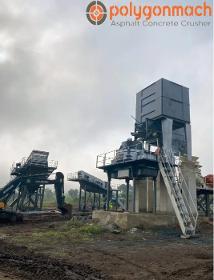
POLYGONMACH MAKINE SANAYI VE TICARET LTD STI
Turkey
The 250-350 tph Dolomite Crushing Screening Plants are developed for producing dolomite aggregates of desired sizes required for construction works. In this, "tph" means tons per hour. So, the 250-350 tph dolomite crushing screening plants can handle 250 to 350 tonnes of dolomite ore within an hour. Being the calcium magnesium carbonate mineral, dolomite is no doubt one of the critical materials used in construction processes, in the production of concrete aggregates and various road base materials, among others. Such plants are, therefore, very important in crushing and screening the dolomite ore efficiently to satisfaction on the specific requirements of the construction projects, thus ensuring a constant supply of quality dolomite aggregates for various uses meant for construction.
Request for a quote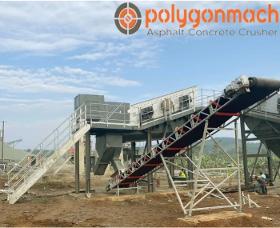
POLYGONMACH MAKINE SANAYI VE TICARET LTD STI
Turkey
The 150-250 TPH Dolomite Crushing Screening Plant is an installation designed to treat specially dolomite-bearing ore. After processing through crushing and screening, dolomite is produced in different aggregate sizes that find target applications. The abbreviation "TPH" expands into "tonnes per hour," asserting this plant's capacity to treat 150-250 tonnes of dolomite ores on an hourly basis. Dolomite is a type of double-carbonate mineral. Such a composition of calcium magnesium carbonate has immense use, mostly in the construction industry, both of concrete aggregates and in the manufacture of road-based materials. Such plants are involved in the effective crushing and screening of dolomite ore for the production of quality aggregates, which form the fundamental ingredients for infrastructure construction works where supply has to be ensured.
Request for a quote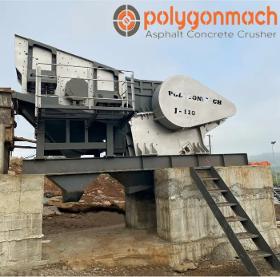
POLYGONMACH MAKINE SANAYI VE TICARET LTD STI
Turkey
It's designed for processing dolomite ore and producing aggregates of diversified sizes suitable for construction. "TPH" is short for "tons per hour" meaning is capable of processing 100 to 150 tons of dolomite ore per hour. Dolomite is a kind of carbonate mineral, which includes calcium magnesium carbonate. It is normally applied in construction for the production of concrete, road bases, and other equally important materials. Improved into a special plant, crushing and screening dolomite assures continuous production of high-quality aggregates required for various construction works.
Request for a quote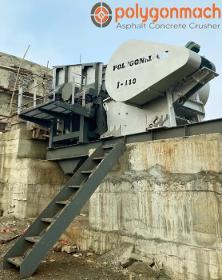
POLYGONMACH MAKINE SANAYI VE TICARET LTD STI
Turkey
A 50-100 TPH dolomite crushing screening plant is one constructed to process dolomite ore into various sizes of aggregates that are used in the construction. "TPH" represents "tons per hour"; the plant has the ability and capacity to deal with between 50 and 100 tons of dolomite ore every hour. Dolomite is a widely used carbonate calcium magnesium carbonate mineral in construction. Basic work undergone by the plant includes the crushing and screening of dolomite in an efficient manner to produce different sizes of aggregates for its concrete, road bases, and other construction uses.
Request for a quote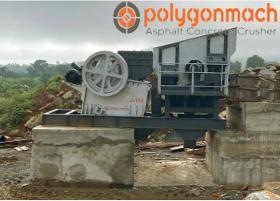
POLYGONMACH MAKINE SANAYI VE TICARET LTD STI
Turkey
The 250-350 tph Granite Crushing and Screening Plant is technically a very advanced construction that is meant to produce granite stones with different aggregates of 0-5, 5-10, 10-15, and 15-20 mm. These plants consist of primary crushers, secondary crushers, vibrating screens, conveyors, and feeders that have been designed to optimize the crushing and screening process fully. The primary crushers of these plants perform a highly important function in the process of fragmentation of large stones of granite and their crushing into small pieces, which will later be reduced by the secondary crushers to the desired size of aggregates. After that, the fractioned material goes through the vibrating screens for a strict screening and separation into fractions according to size, thus providing that the final aggregates will be in strict compliance with high-quality specifications for use in construction works and other industrial applications.
Request for a quote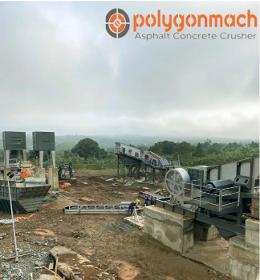
POLYGONMACH MAKINE SANAYI VE TICARET LTD STI
Turkey
700-1000 tph Riverstone Crushing and Screening Plants are sophisticated facilities designed to process large quantities of Riverstones into high-quality aggregates at an impressive throughput capacity ranging from 700 to 1000 tons per hour. These plants consist of specialized primary crushing equipment, advanced screening machinery, and efficient conveyors tailored to handle substantial volumes of Riverstones. The primary crushers, such as jaw crushers and impact crushers, play a pivotal role in breaking down the raw Riverstones into smaller fragments at the initial stage of the processing cycle. This primary crushing phase is essential for preparing the raw material for subsequent processing stages by effectively reducing the size of the Riverstones within the specified high throughput capacity range.
Request for a quote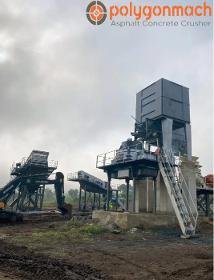
POLYGONMACH MAKINE SANAYI VE TICARET LTD STI
Turkey
350-500 tph Riverstone Crushing and Screening Plants are advanced facilities designed to efficiently process Riverstones into high-quality aggregates at a throughput capacity ranging from 350 to 500 tons per hour. These plants consist of specialized primary crushing equipment, screening machinery, and conveyors tailored for the effective processing of Riverstones into various sizes of aggregates suitable for a wide range of construction, landscaping, and industrial applications. The primary crushers, such as jaw crushers or impact crushers, play a crucial role in breaking down the raw Riverstones into smaller fragments at the beginning of the processing cycle. This primary crushing stage is essential for preparing the raw material for subsequent processing stages by effectively reducing the size of the Riverstones within the specified throughput capacity.
Request for a quote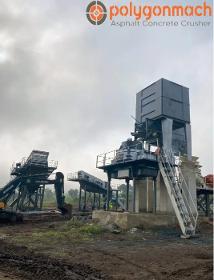
POLYGONMACH MAKINE SANAYI VE TICARET LTD STI
Turkey
Mobile crushing and screening plants 250-350 tph RS represent a highly technological, skilfully designed material processing equipment aimed at producing high-quality end-aggregates for different levels of Riverstone crushing. These plants integrate special primary crushing equipment, screening machinery, and conveyors for the proper processing of Riverstones into aggregates of different sizes, used in a variety of construction, landscaping, and industrial applications. On the first stage of processing, primary crushers—jaw crushers or impact crushers—are used; at the start of the processing cycle, raw Riverstones get broken down into small shreds. This primary crushing stage is designed to be necessary for the reduction of the size of Riverstones raw material, preparatively for further processing stages. After primary crushing, it is fed into screening equipment—generally, vibrating screens—which sorts the aggregate into various fractions classified based on their sizes.
Request for a quote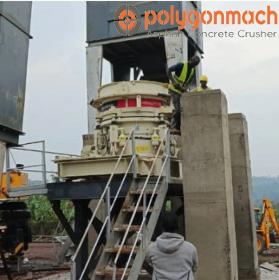
POLYGONMACH MAKINE SANAYI VE TICARET LTD STI
Turkey
The 40-60 TPH Riverstone crushing and screening plants are made for the production of top-quality aggregates from Riverstones effectively at a capacity of 40-60 short tons per hour. The pre-primary crushing machinery, screening equipment, and conveying systems of this plant are specially designed for the processing of Riverstones. These plants break the raw Riverstones into smaller pieces with the help of primary crushers such as jaw crushers or impact crushers. This starts the initial process. The product from primary crushing is later passed through vibrating screens for the purpose of classifying the aggregates into various fractions according to size. This screening procedure is very vital to ensure that the final aggregates produced meet the quality standards for use in various construction, landscaping, and industrial applications. By processing Riverstones systematically, the 40-60 tph Riverstone Crushing and Screening Plants turn them into a better aggregate that will
Request for a quote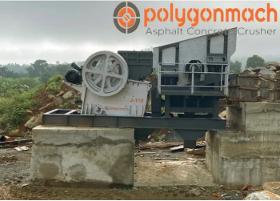
POLYGONMACH MAKINE SANAYI VE TICARET LTD STI
Turkey
700-1000 tph Granite Crushing and Screening Plants are the latest facilities. The plants aim, particularly, in the processing of stone granites to high-quality aggregates with a variable capacity of 700 to 1000 tons per hour. These advanced plants have been engineered with primary crushers, secondary crushers, vibratory screening plants, conveyors, and feeders facilitating efficient crushing and screening. Where primary crushers in the plant reduce oversized granite rocks to smaller fragments, secondary crushers continue to refine the material one step further to the target sizes for aggregates. Thoroughly screened using vibrating screens, the aggregate fractions are then sized and classified according to sizes into the final product to a very high standard to every highly diversified usage in construction, infrastructure, and industry. Through processing granite stones in a systematic manner, such plants give high-quality aggregates that are used in different construction projects to
Request for a quote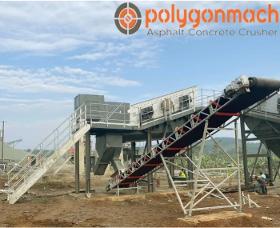
POLYGONMACH MAKINE SANAYI VE TICARET LTD STI
Turkey
150-250 tph Riverstone Crushing and Screening Plants are advanced facilities designed to efficiently process Riverstones into high-quality aggregates at a throughput capacity ranging from 150 to 250 tons per hour. These plants are equipped with specialized primary crushing equipment, screening machinery, and conveyors tailored for the effective processing of Riverstones into various sizes of aggregates suitable for a wide range of construction, landscaping, and industrial applications. The primary crushers, such as jaw crushers or impact crushers, are instrumental in breaking down the raw Riverstones into smaller fragments at the beginning of the processing cycle. This primary crushing stage ensures the material is prepared for subsequent processing stages. Following primary crushing, the material undergoes screening using vibrating screens to classify the aggregates into different fractions based on size.
Request for a quote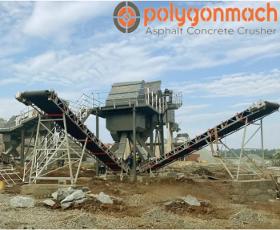
POLYGONMACH MAKINE SANAYI VE TICARET LTD STI
Turkey
The 500-750 tph Granite Crushing and Screening Plants are high-tech installations permitting the processing of granites in large quantities to high-quality aggregates at an impressive production capacity, in the range of 500 to 750 tons per hour. These plants consist of primary crushers, secondary crushers, vibrating screens, conveyors, and feeders, designed under the principle of working hard for the careful optimization of crushing and screening processes. In the advanced plants, the primary crushers are servicing the purpose of breaking big granite rocks into fragments of smaller size; secondary crushers then receive the product from these to further crush it in order to come up with the aggregate of the desired size. Vibrating screens are used for screening the crushed stone material to separate the product into fractions of various size in order to secure that final aggregates are of high quality to be used in various construction projects, infrastructure developments, and industr
Request for a quoteResults for
Crushing and screening - Import exportNumber of results
159 ProductsCountries
Company type
Category
- Crushing and grinding machinery (150)
- Concrete preparing - machinery and equipment (72)
- Compactors and crushers (4)
- Mining and quarrying - machinery and equipment (3)
- Building materials, manufacture - machinery and equipment (2)
- Flat screens (2)
- Concrete constructions (1)
- Excavation - works (1)
- Metal screens for reinforced concrete (1)
- Minerals (1)
- Turning - steels and metals (1)